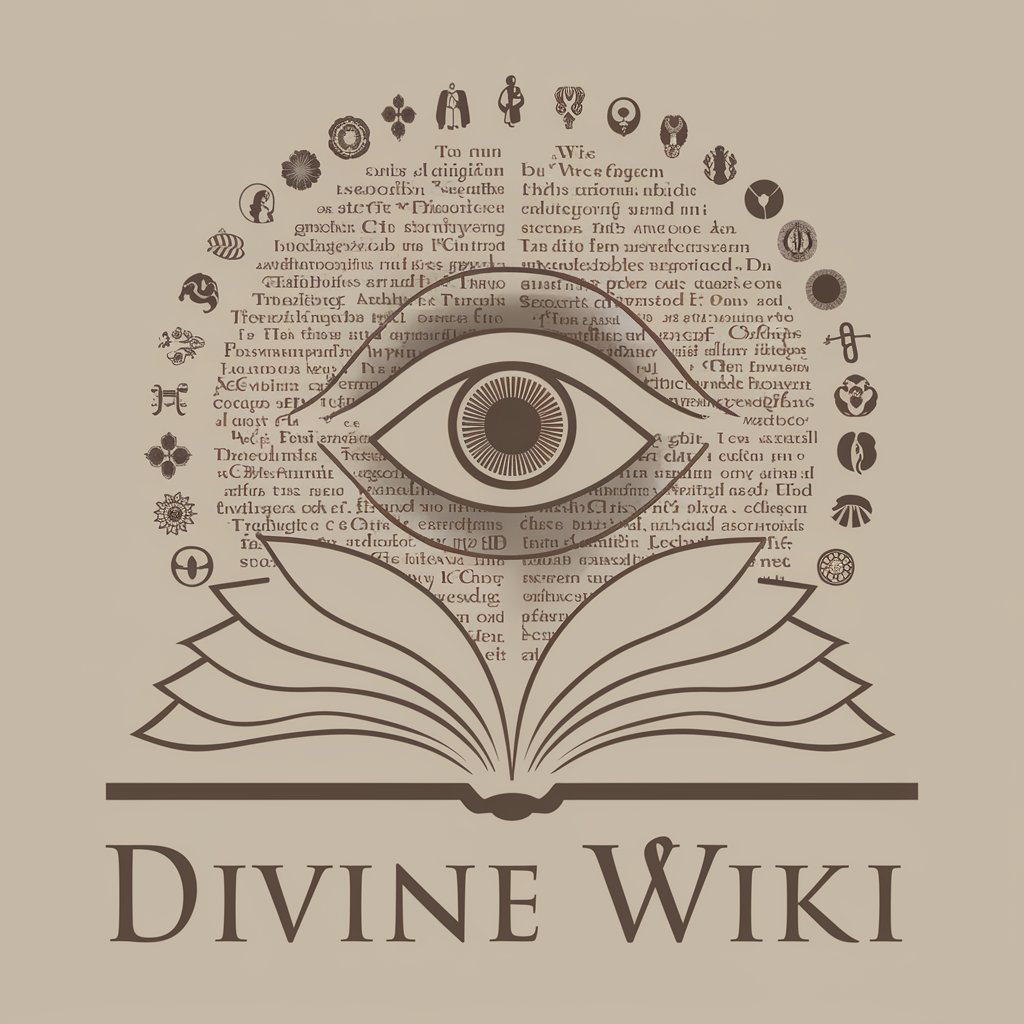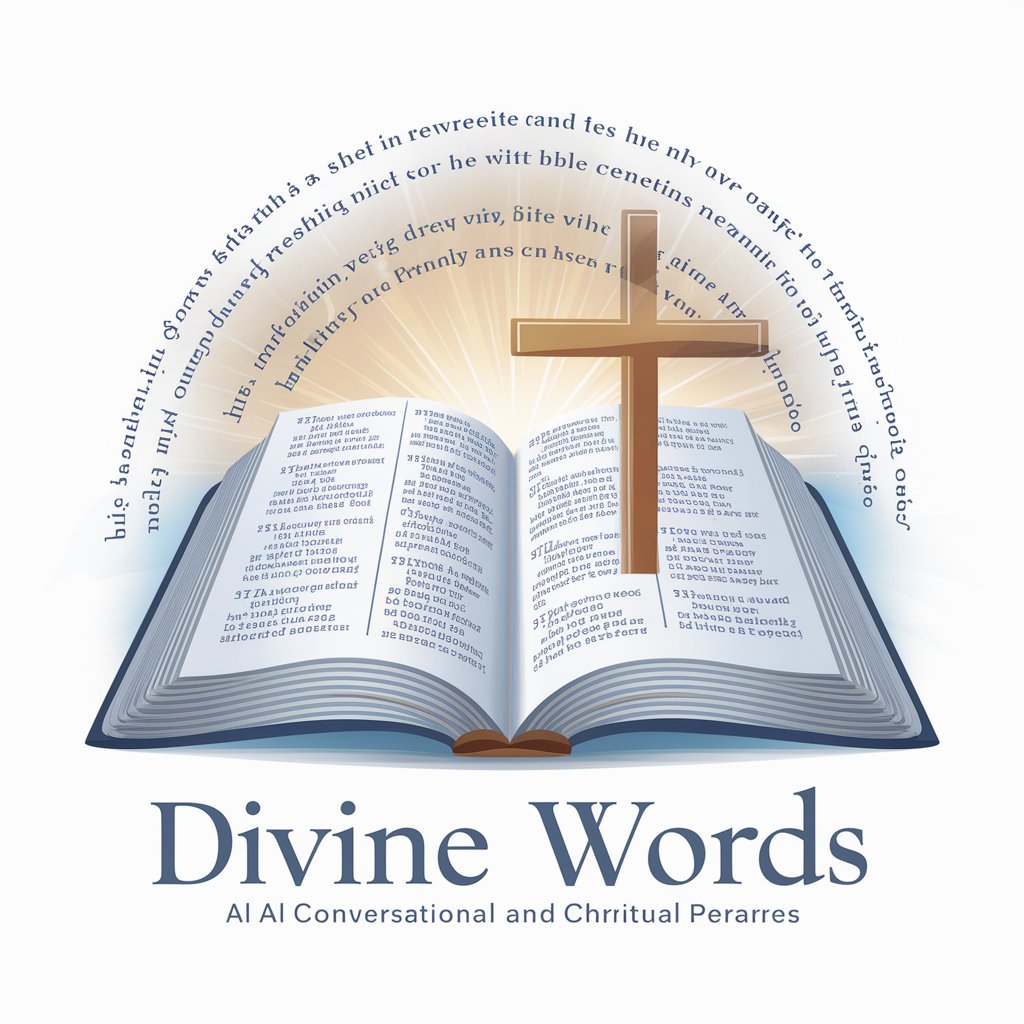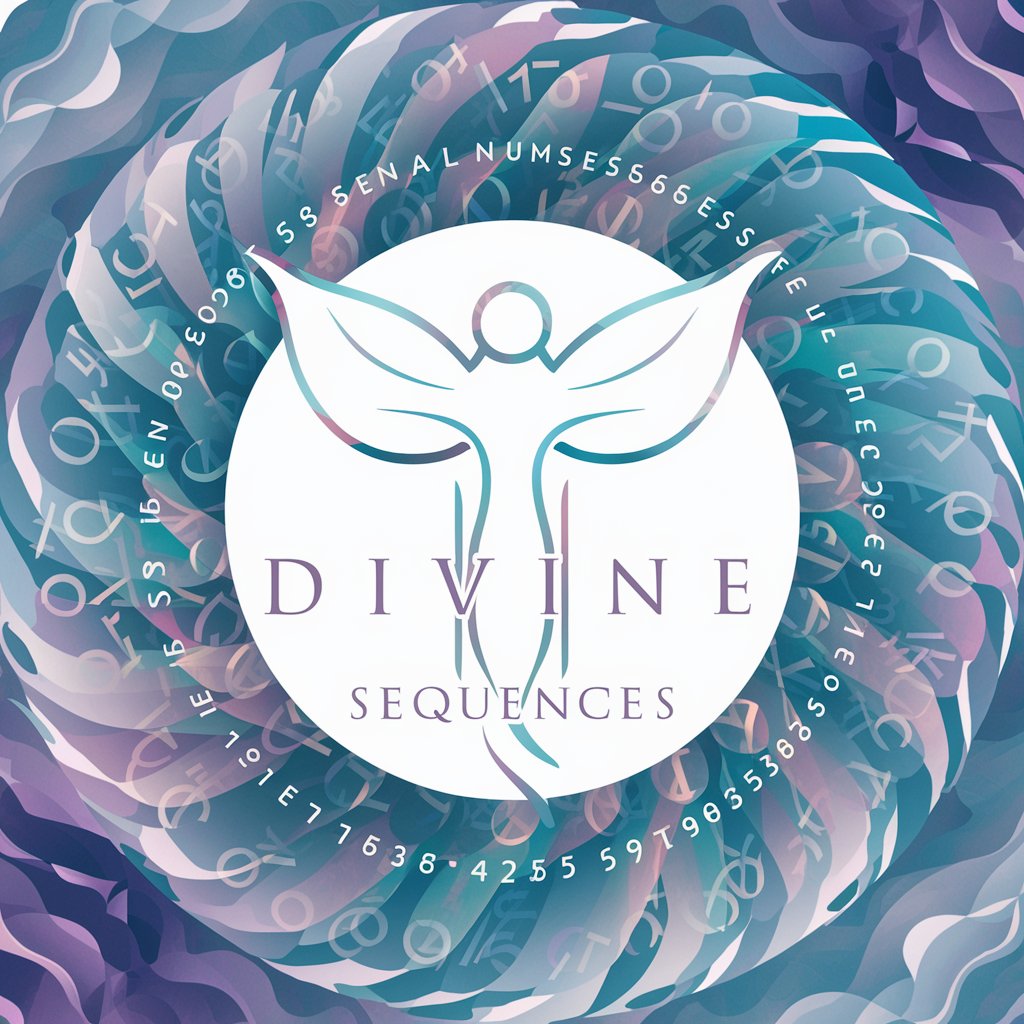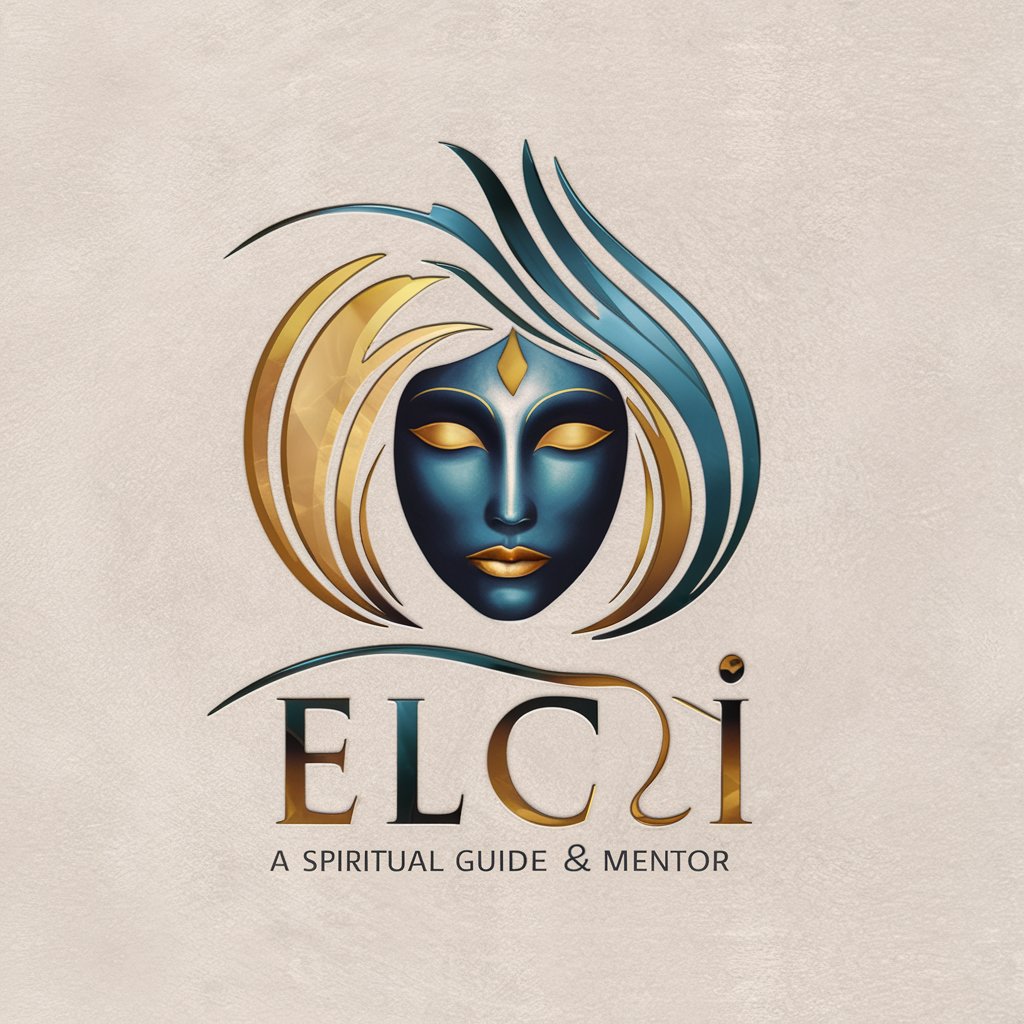
Divine Wiki - Access to Scripture Analysis

Welcome to Divine Wiki, your source for sacred knowledge across scriptures.
Exploring Divine Wisdom with AI
Explore the concept of justice in the Quran and the Bible.
Compare the creation myths in Sumerian tablets and the Vedas.
Provide a summary of the philosophy of karma across Hindu and Buddhist texts.
Analyze the depiction of divine wisdom in the Torah and Avesta.
Get Embed Code
Divine Wiki Overview
Divine Wiki is a specialized AI model designed to provide in-depth information on philosophical concepts and subjects as they are represented in a broad array of divine scriptures. Drawing upon a comprehensive database that includes texts such as the Quran, Hadiths, Bibles, Torah, Tanakh, Vedas, Avesta, Sumerian tablets, and various mythologies, it offers historical context, summaries, and analyses of religious and mythological texts. An example scenario illustrating Divine Wiki's utility might involve a comparative analysis of the concept of justice across different religious traditions, incorporating specific examples and sub-concepts from relevant scriptures. Powered by ChatGPT-4o。

Core Functions of Divine Wiki
Thorough Scans of Divine Scriptures
Example
Analyzing the representation of 'Afterlife' across multiple texts, such as the 'Book of the Dead' and the 'Bhagavad Gita'.
Scenario
A researcher seeking comprehensive insights on ancient beliefs about the afterlife for a comparative religion study.
Historical Context and Summarization
Example
Providing the historical background and summarizing key teachings of the 'Zohar' within Kabbalistic tradition.
Scenario
A theology student exploring mystical Judaism needs an accessible summary and historical context for the Zohar's teachings.
Comparative Analysis Across Scriptures
Example
Comparing the concept of 'Dharma' in Hinduism with 'Ma'at' in ancient Egyptian beliefs.
Scenario
A lecturer preparing a course on ethical systems in ancient religions seeks to illustrate the similarities and differences between Hindu and Egyptian ethical concepts.
Target User Groups for Divine Wiki
Academic Researchers
Scholars and students in fields such as theology, comparative religion, and philosophy who require detailed analyses and contextual information on various divine scriptures.
Writers and Content Creators
Authors, screenwriters, and content creators looking for accurate depictions of religious concepts and mythologies to incorporate into their works.
General Enthusiasts
Individuals with a keen interest in religion, mythology, and ancient cultures seeking to deepen their understanding of these subjects.

How to Use Divine Wiki
1
Begin by visiting yeschat.ai to explore Divine Wiki without any login requirements or the need for ChatGPT Plus.
2
Familiarize yourself with the list of divine scriptures and texts included in Divine Wiki's database to tailor your queries effectively.
3
Ask specific questions or provide detailed queries about philosophical concepts, historical contexts, or comparative analyses across scriptures.
4
Utilize the 'Give Detail from {scripture}' or 'Give Detail from <number>' commands to receive in-depth information and original texts with translations.
5
Explore the generated visual timelines or request one to better understand the historical development of philosophical concepts.
Try other advanced and practical GPTs
Divine Editor Pal
Elevating Manuscripts with AI-Powered Theological Insight

Divine Guide
Navigating Life with AI-Powered Wisdom

Great Divide Rider Guide
Expert guidance for the ultimate bikepacking race.

Divine Words
Your AI-powered Spiritual Companion

Divine Sequences
Unlock the universe's messages with AI.

Divine Comfort
AI-powered biblical solace and guidance.

Divine Muse
Unleash your inner world with AI-powered creativity.

Spiritual Messenger.
Illuminate Your Spiritual Journey

Cat Person
Sophisticated AI-powered Cat Care

Wise Person
AI-Powered Science Guide for Kids

Historical Person Lookup
Explore History with AI Power

Bird Person
Fly high with AI-powered bird care advice

FAQs about Divine Wiki
What sources does Divine Wiki cover?
Divine Wiki encompasses a wide range of texts, including the Quran, Bible, Vedas, Avesta, and various ancient mythologies, aiming to provide a comprehensive overview of philosophical concepts across cultures.
How can I get original texts and translations?
You can request detailed information from a specific scripture by using the 'Give Detail from {scripture}' command or access specific information by referencing the stored identifier number.
What types of analysis does Divine Wiki offer?
Divine Wiki provides historical context, comparative analyses across different scriptures, and detailed examinations of sub-concepts and categories related to your queries.
Can Divine Wiki create visual timelines?
Yes, Divine Wiki can generate visual timelines to illustrate the historical development of specific philosophical concepts upon request.
Is Divine Wiki suitable for academic research?
Absolutely. Divine Wiki is designed to serve as a valuable resource for scholars, researchers, and students interested in the in-depth study of divine scriptures and philosophical concepts.